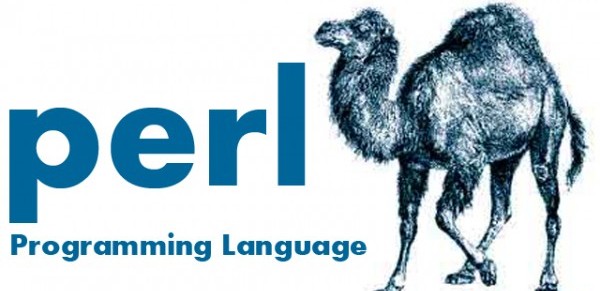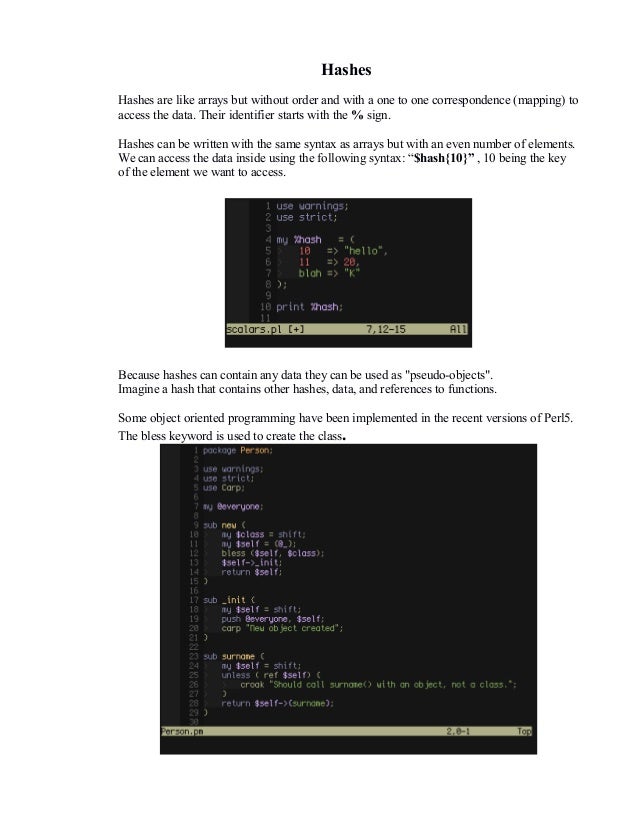

How do I then pass that block on to another method? The introductory Lack of documentation: If I write a method that takes a block,.I just took another look this afternoon, and was onceĪgain found myself ready to abandon the attempt without doing anything I've glanced at Ruby before, probably after someone remarked on howĬlean it is. (OT - ruby) Re: Re: Favorite programming language, other than Perl:
Perl programming language code#
They'll be able to run a Ruby-based system similar to the Everything Engine once the admin of this project gets off his lazy ass and releases some code ). Re (3): Favorite programming language, other than Perl: I prefer web sites where people eat their own cooking. Re (2): Favorite programming language, other than Perl: While there's no Ruby Monks yet, there is a Ruby Garden and some good mailing lists.įor the interested, there's also an excellent book available online that will give you a good feel for the language.

Beautiful OO, and very easy to learn coming from a Perl background. yet :) but my current favorite (other than Perl of course) is Ruby. As it borrows elements from many other programming languages, it makes an excellent jumping-off point for those just beginning to expand their knowledge of programming.Re: Favorite programming language, other than Perl:
/155770666-56a77ac33df78cf772965789.jpg)
Over time it has undergone many expansions and revisions and is now used for everything from system administration to GUI development. Perl is a family of general purpose dynamic programming languages originally developed for text manipulation. By the end of the course, you'll be ready to use Perl in a wide range of real world applications. But don't worry – you'll work from the bottom up and progress at a pace that suits you, starting off with installation and creating more complex applications with each stage.Īlong the way you'll pick up various Perl fundamentals like scalar data, arrays and lists, subroutines, input and output, hashes, and regular expressions before tackling your final project. You'll get to grips with Perl fundamentals and design a Perl application, as well as creating automated applications that do the work for you and advanced text analyser applications. With over 70 lectures and 7.5 hours of content, this is a true crash course that will get you up to speed in no time. Those who already have programming experience but want to learn the basics and concepts of Perl will also find it perfectly suitable. This course has been specifically designed for those who have an interest in programming, but still consider themselves to be beginners. Prepare a foundation of knowledge for learning other more complex languages.

Gain a conceptual understanding and practical skills to construct your own levelsīecome competent with the Perl language family and its use in various applications Work with different data types including strings, numbers, variables and user inputĬreate and use array, subroutines, hashes, and regular expressions in Perl applications Perl is one of those languages, and this course will teach you everything you need to know. Luckily, there are plenty of languages that are simple to learn, highly versatile to use, and make a great starting point for gaining fluency in the coding universe. For those just delving into the world of programming, this can be a little overwhelming. The world of programming has become almost saturated with different languages, all created for different purposes but developed for use in multiple applications.


 0 kommentar(er)
0 kommentar(er)
